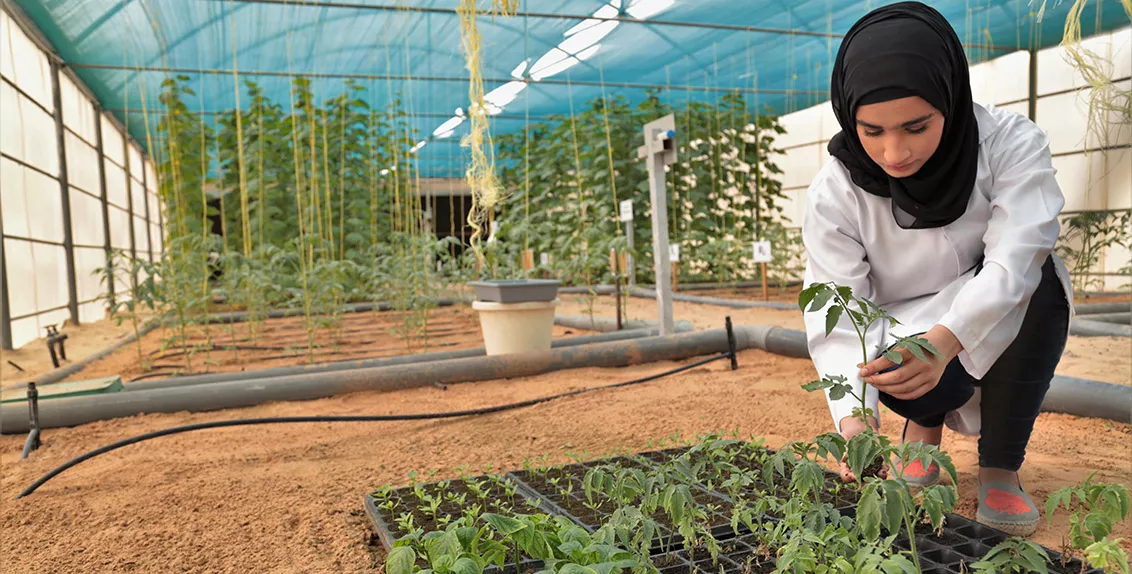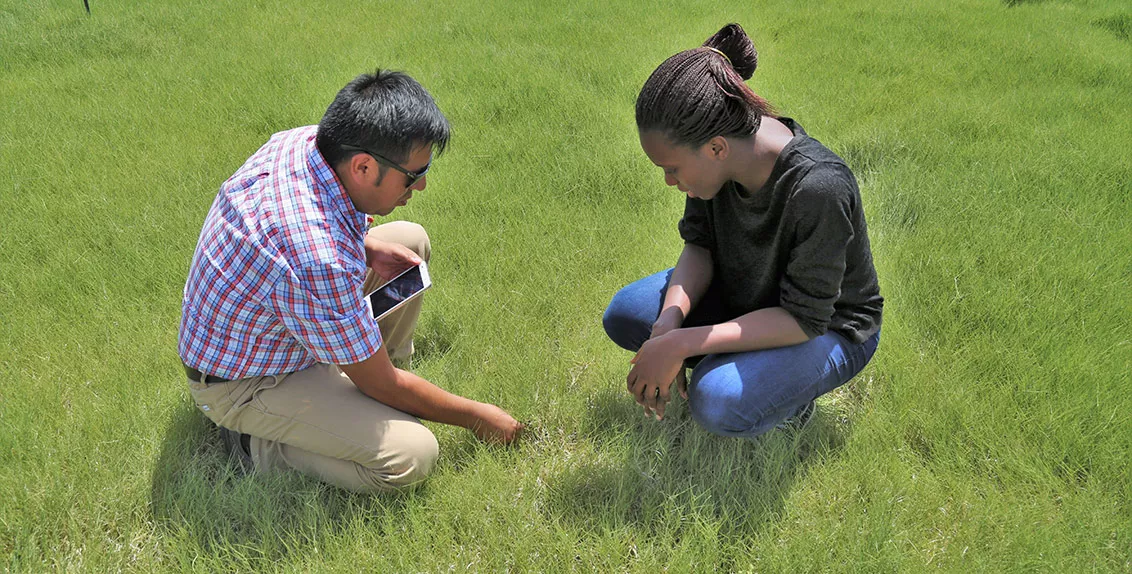E-forum aims to spark youth interest in farming in UAE
1 June 2020
In the wake of the global outbreak of Covid-19, food security and nutrition have come to the fore in many net food-importing nations. Governments are looking at ways to ensure food self-sufficiency. And this often means mobilizing all available resources and sometimes looking beyond the traditional farming communities, food producers and suppliers. One segment of society that has often been less engaged in agriculture and food production is youth.
Young people make up a large proportion of the population in many countries and it is important to harness their potential. Today they are better connected than ever before, and most are willing to serve their communities. All they need is skills, incentives and opportunities for farming.
How to inspire youth to become part of food security initiatives by taking up farming, being more conscious consumers and contributing to sustainable food production and consumption in other ways in the UAE was one of the questions raised during an online forum featuring two distinguished speakers: Her Excellency Mariam bint Mohammed Almheiri, UAE Minister of State for Food Security, and Dr. Ismahane Elouafi, Director General of the International Center for Biosaline Agriculture (ICBA).
More than 150 UAE-based young people had a unique opportunity to interact with Her Excellency Mariam bint Mohammed Almheiri and Dr. Ismahane Elouafi and learn about different strategies aimed at ensuring sustainable food production in the country.
Held on 1 June 2020 as part of the Reimagine Virtual Youth Majlis (an Arabic word meaning "a place of sitting" or "a council") Series and titled the Future of Food: Putting Youth at the Center of Post-Covid-19 Planning, the forum discussed various challenges and opportunities for sustainable agriculture, including new agri-technologies.
During the forum, Her Excellency Mariam bint Mohammed Almheiri presented the UAE's National Food Security Strategy 2051, which aims to propel the country to the top spot in the Global Food Security Index by 2051, and the list of the top ten countries by 2021. The strategy includes 38 short- and long-term initiatives and spells out five broad goals with a focus on facilitating global food trade, diversifying sources of food imports through partnerships, and enhancing sustainable local food production, among others.
The forum also talked about the significant progress made in the UAE in terms of sustainable technology-driven domestic food production. Today local farmers and agri-businesses grow such crops as blueberries, quinoa, millet; farm fish like salmon and hammour (an Arabic term for brown spotted reef cod); and use various technologies such as hydroponics, aquaponics, and vertical farming.
During the discussion, Dr. Ismahane Elouafi pointed to the need for more diversified food systems incorporating the right crops, that is the crops that can thrive in marginal environments. Some of these crops suitable for local conditions include quinoa, Salicornia, pearl millet and sorghum.
She also explained how ICBA, through its capacity-building programs, empowers young people to become agents of change and contribute to sustainable agriculture and food production and environmental protection. She stressed that the younger generation should be the face of future agriculture and food security.
During a poll conducted as part of the forum, the majority of the participants agreed that sustainable food production must always be a priority and there is a need to reduce food waste by changing food consumption habits and learning about the efforts required to produce food, especially for the green recovery after the Covid-19 pandemic.
The forum also highlighted the need to invest in local food production, and many young attendees showed a great enthusiasm for starting their own farms.
Forums like this one are essential for raising awareness about food security and youth's interest in farming. This is critical for sustainable future food security as the world needs a new breed of agripreneurs and innovators who will take sustainable food production to another level.
The event was part of the Connect with Nature, an interactive environmental education and awareness program led by the Environment Agency — Abu Dhabi (EAD), the Emirates Nature-WWF, and the International Fund for Houbara Conservation (IFHC).












